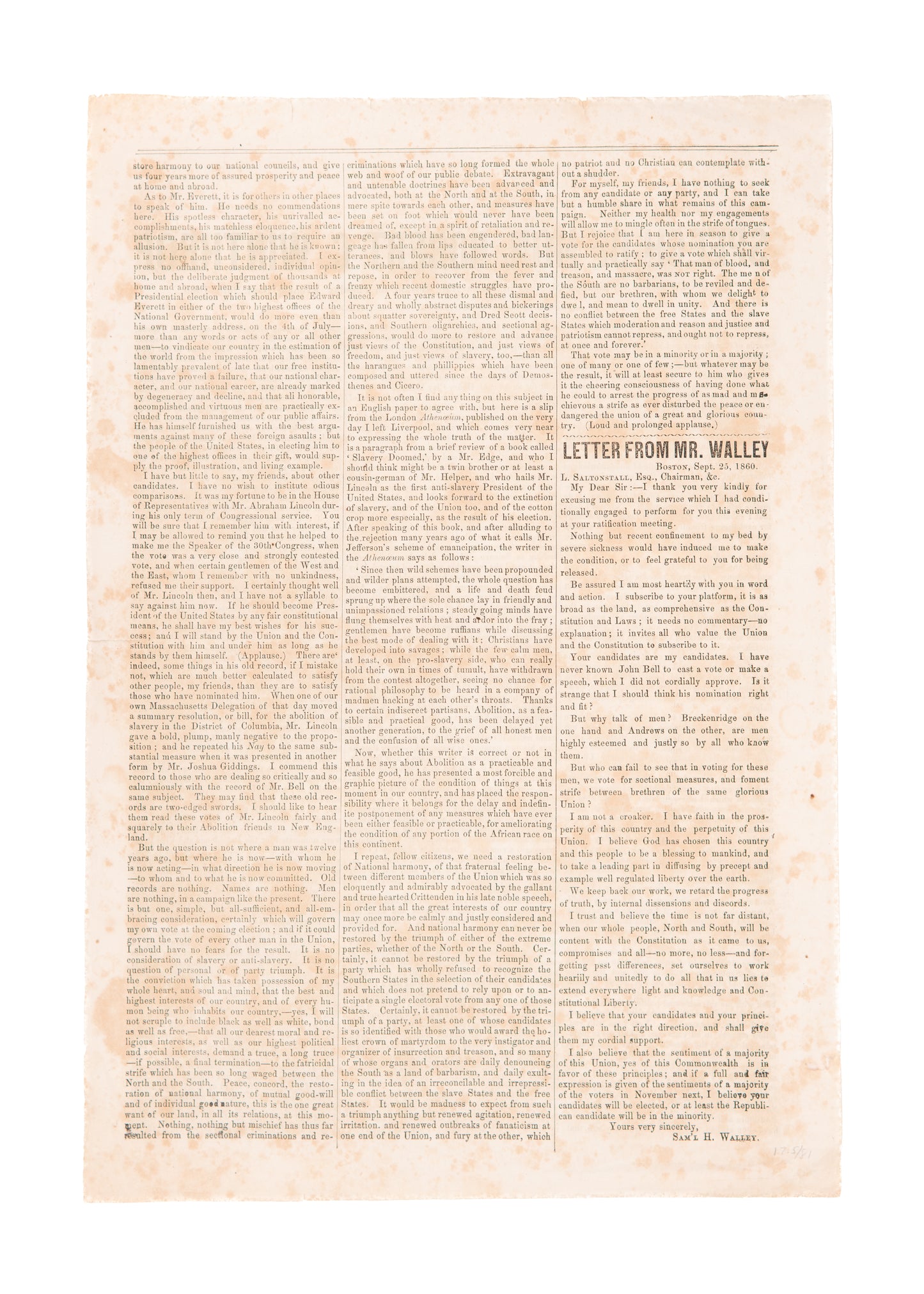Specs Fine Books
1860 ABRAHAM LINCOLN - DRED SCOTT. Rare Anti-Lincoln Broadside Accusing Him of not being Anti-Slavery &c.
1860 ABRAHAM LINCOLN - DRED SCOTT. Rare Anti-Lincoln Broadside Accusing Him of not being Anti-Slavery &c.
Couldn't load pickup availability
An exceptional example of a scarce anti-Lincoln broadside with an inferior example held at the Library of Congress as part of the Alfred Whital Stern Collection of Lincolniana.
The present double-sided broadside, measuring 10.5 x 14 inches, is the speech in full of Massachusetts Representative and Senator, Robert Winthrop. Winthrop had replaced Webster in the Senate after he was all but run off by abolitionists. Winthrop, also a pragmatist on the issue of slavery ,proved no more popular.
By the time Lincoln was seeking the nomination in 1860, Withrop was still convinced the abolitionists were on the wrong side of history. He threw his support behind Constitutional Union Party candidate, John Bell, who he here compares favorably against Lincoln.
Winthrop was a formidable public orator, being chosen to speak at the dedication of both the Franklin statue in Boston and the Washington Monument. Here he levels his speech against the candidacy of Lincoln. He accuses the abolitionists of comparing John Brown to Jesus and making him a martyr of the Christian faith, claims that Abraham Lincoln is a flip-flopper who actually voted against abolitionist bills before the Legislature. He then challenges Lincoln's record to be read in public with his abolitionist friends present. Winthrop further charges that Lincoln not only voted against them, but did so in a "bold, plump, manly manner," i.e. he was robustly opposed. He goes on to suggest that Lincoln would not only end slavery, but the production of cotton and all but eradicate States' rights. The implication is clear enough. Lincoln isn't anti-slavery, he is pro power, especially if he is at the head of it.
Winthrop continues by predicting that abolitionism, Dred Scott, John Brown, the abolitionist's castigation of the South, etc., are at such a fever pitch that war is nearly inevitable if John Bell is not elected. Bell would immediately call a four-year truce to all issues surrounding slavery, a cease-fire of sorts. Bell, however, was doomed from the start on grounds of sheer impracticality. The Federal Government could call a truce in the legislature, in the governmental domain all it wanted, but it had no ability to stop the press and the publisher, both of whom were in full swing on the issue.
We trace no examples at auction or available in the trade.
Winthrop, Robert C. Speech of Hon. Robert C. Winthrop. Delivered at the Ratification Meeting in Music Hall, Boston, on Tuesday Evening, Sept. 25th, 1860. 1860.
In very good condition, with light to moderate foxing, and some marginal handling. The best example extant we trace.
Share












